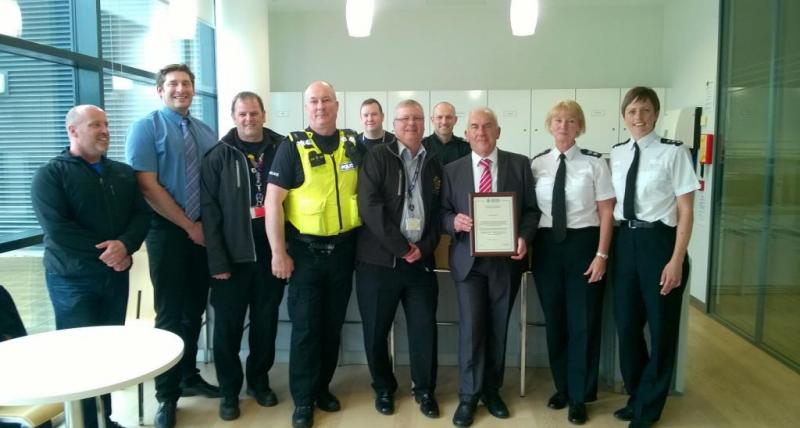
A TOP enforcement officer who helped make North Tyneside one of the safest boroughs in England has stepped down after 44 years of service.
Colin Boxshall has retired from his role as the head of North Tyneside Council’s safer estates team.
In a career spanning four decades, the 60-year-old transformed the council’s approach to antisocial behaviour, brought hundreds of prosecutions, won numerous awards, and made North Tyneside one of the safest boroughs in England.
Speaking ahead of his last day at the council, Colin said: “It will be an emotional day, but I felt that the time was right to spend a bit more time doing the things I enjoy, as well as some more voluntary work. I’ve got an excellent team and I cannot speak highly enough of them.”
Born in North Shields, Colin joined the old County Borough of Tynemouth council aged 16, in 1973, after leaving Linskill High School.
He gained qualifications at night school and went on to work as a housing manager in Longbenton, at a time when councils were largely powerless to deal with antisocial behaviour.
In 1992, he was awarded a commendation for environmental work in the Queen Mother’s birthday awards and was declared ‘community partner of the year’ in the 2004 Northumbria Police awards.
Returning to North Shields as housing manager Colin came up with a bold new plan for tackling antisocial in the town, which involved confronting troublemakers on their doorsteps in early morning raids with the police.
Operation Respect involves Colin knocking on the doors of problem tenants at 7am – with the support of the neighbourhood police team - and warning them to clean up their act or face being taken to court.
The operation has proven such a huge success that it’s received national media coverage and been extended to the whole of the borough.
Colin explained: “When we turn up on people’s doorsteps, sometimes they will ask us to come inside. But I refuse and stay on the doorstep so their neighbours can see we are taking action and doing something - so they can be reassured.
“This has led to an increase in confidence and more people feel they can report issues to us.
“We’ve taken hundreds of cases to court. The team celebrates when the court grants an eviction order because it’s made the neighbours’ lives a misery. We like to make their lives misery as well by being constantly at them, taking them to court for orders which can be eviction, injunction, or exclusion from an area.
“The rights of a community to live in peace and quiet must always come first.”
Colin has had to be thick-skinned about his work and has received numerous threats and abuse from the people he confronts.
He added: “I’ve always been passionate about tackling antisocial behaviour and it’s really the satisfaction of getting rid of it on estates, as well as the relief on the faces of victims. We do get a lot of people coming up to thank us.
“Operation Respect is that hard-hitting approach and people do actually change their ways. I have had threats, but it doesn’t concern me. I know that I have support from the police. You get immune to it.
“I am fortunate to have a team of first-class dedicated officers who are also passionate about making communities safer.
“Today, North Tyneside is one of the safest metropolitan boroughs in England, and the police and council want to keep it that way.”
In 2014 Colin was shortlisted for a lifetime achievement award in the UK housing awards, and won ‘practitioner of the year’ in the national ASB awards after being nominated by colleagues.
Phil Scott, Head of Environment, Housing and Leisure at North Tyneside Council, said: “Colin has had a long and distinguished career with the council during which time he has played a huge role in making the borough one of the safest in the country.
“His dedication to improving life in our communities together with his voluntary work has been an example to all. He’s been recognised with national awards and national news headlines, but the gratitude of local people is perhaps what matters most.
“I would like to thank him personally and on behalf of all our colleagues and our communities. We wish him well in the future.”
If anyone is being affected by anti-social behaviour, they should report their concerns to the council or the police on 101.
